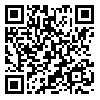Volume 12 -
IJMEHM 2019, 12 - : 438-449 |
Back to browse issues page
Download citation:
BibTeX | RIS | EndNote | Medlars | ProCite | Reference Manager | RefWorks
Send citation to:



BibTeX | RIS | EndNote | Medlars | ProCite | Reference Manager | RefWorks
Send citation to:
Sadat Akhavi S M, Salehi H R. Physician’s Respect; Patient’s Boundary and the Invaluable Virtue Named “Trust”. IJMEHM 2019; 12 :438-449
URL: http://ijme.tums.ac.ir/article-1-6155-en.html
URL: http://ijme.tums.ac.ir/article-1-6155-en.html
1- Assistant professor, Department of law, Shahed University, Tehran, Iran
2- Assistant professor, Department of law, Payame Noor University, Tehran, Iran
2- Assistant professor, Department of law, Payame Noor University, Tehran, Iran
Abstract: (2290 Views)
The mutual trust in a social relationship is essential to adjusting that relationship under ethics and law. The functionality of legal and ethical rules can be trusted to create a good, orderly and just relationship when the parties can trust each other under the protection of such rules. The first legal documents in Iran required the practitioner to obtain the respect and trust of the society in himself and his colleagues, and then made clear his obligation under it. In subsequent reforms, such obligation stood as they were, but the values of “trust” and “respect” were not mentioned. It seems that “trust” and “respect” of physicians in a society is the good will of these professionals which supports the efficiency of the treatment on one hand, and the conscious cooperation of the patient on the other. This matter is dependent on the physician’s effort in respecting the patient’s boundary and staying true to the physicians own technical and professional obligations. This article emphasizes the necessity this inseparable relationship, and the analysis of legal obligation in the light of such higher ethical values.
Keywords: Trust, Professional obligations, Technical obligations, Physician’s respect, Patient’s boundary
Type of Study: Research |
Subject:
Madical law
Received: 2019/07/6 | Accepted: 2019/11/3 | Published: 2019/03/15
Received: 2019/07/6 | Accepted: 2019/11/3 | Published: 2019/03/15
| Rights and permissions | |
 |
This work is licensed under a Creative Commons Attribution-NonCommercial 4.0 International License. |





